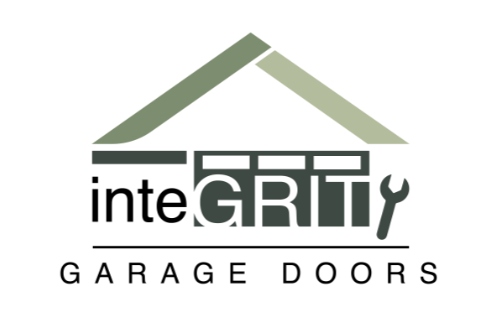The tranquility of your serene neighborhood can easily be disrupted by the dissonance of a noisy garage door. While the installation quality and the door's overall craftsmanship play a part in this auditory ordeal, several common culprits stand out. These include worn-out rollers, inadequate lubrication, loose components, and tension spring complications. Ignoring these audible alarms can lead to more severe issues down the road, emphasizing the importance of seeking out garage door repair services.
Factors Contributing to the Symphony of Noisy Garage Doors
A cacophonous garage door can often be attributed to a medley of factors, especially if routine maintenance is neglected. These issues, when left unaddressed, can escalate, potentially posing risks to you and your household.
Worn-Out Rollers and Hinges: Picture the screeching sound of a rusty skateboard wheel, and you'll have an idea of what worn-out garage door rollers and hinges can sound like. These components play a crucial role in maintaining smooth door movement and require regular cleaning and lubrication.
Lack of Lubrication: It's not just the rollers and hinges that thirst for lubrication. Your garage door functions like a finely tuned machine with numerous moving parts. Regular lubrication keeps these parts silent and prevents the development of rust, a common source of friction-induced noise.
Loose Hardware: Have you ever been irritated by the sound of a loose screw rattling in a drawer? Your garage door can produce a similar annoyance if nuts, bolts, and other fasteners become loose. Increased vibrations generate more noise, resulting in a self-perpetuating cycle of rattling. The solution? Tighten everything up!
Tension Spring Troubles: Garage doors heavily rely on tension springs to facilitate smooth lifting and lowering. Damaged tension springs can emit screeching, creaking, or other unsettling noises, signaling their deterioration.
Garage Door Opener Issues: The convenience of a garage door opener can occasionally be accompanied by its own set of troubles. A malfunctioning opener can contribute to unwelcome noises due to its internal moving parts wearing down over time. Unusual sounds should serve as a prompt to inspect your opener.
Diagnosing the Origin of the Noise: Identifying the Culprit
While the noise provides a clear indication that something is amiss with your garage door, it is essential to pinpoint the exact issue. This knowledge not only aids in efficient garage door maintenance but can also assist in negotiating repair costs with a professional.
Listening for Distinctive Sounds
Close your eyes and open your ears – this is your investigative strategy. Different issues produce different sounds:
A screech may signify worn-out rollers.
A grind might indicate a lack of lubrication.
A rattle often points to loose hardware.
Listening attentively can often help you identify the problem without resorting to tools.
Visual Inspection of Garage Door Components
Sometimes, you don't need to be an expert to spot the anomaly. A visual examination of various parts such as rollers, hinges, springs, and tracks may quickly reveal the issue. A hanging roller or a deteriorating hinge can be obvious visual cues that lead you straight to the source of the noise.
Addressing Noisy Garage Door Woes
Understanding the source of the garage door noise is not only essential for better maintenance but also aids in efficient repairs. In some cases, the bark is worse than the bite, and the noise may be of minor concern. Even if you cannot resolve it yourself, knowledge of the issue can be invaluable when seeking assistance from a garage door repair expert.
Replacing Worn-Out Rollers and Hinges: Often, noisy garage doors find their roots in worn-out rollers and hinges. Replacing these components can restore smooth, silent operation.
Lubricating Moving Parts: Regularly applying lubrication to the moving parts of your garage door enhances efficiency and reduces noise. A well-lubricated door operates more smoothly and enjoys an extended lifespan.
Tightening Loose Hardware: Loose nuts, bolts, and hardware can generate disruptive noises. Securing them properly can silence the cacophony.
Adjusting Tension Springs: Tension springs play a pivotal role in your garage door's movement. Adjusting them correctly can eliminate noise issues and restore peace and quiet.
Maintenance Tips for Garage Door Openers: Even the convenience of modern garage door openers can be accompanied by noise. Regular maintenance checks, cleaning, and lubrication can help keep your opener's noise in check.
Preventing Future Noise: Regular Maintenance and Care
Having silenced the noise, it's imperative to maintain that serenity. Regular garage door maintenance can prevent costly repairs and minimize the risk of accidents.
Regular lubrication is paramount. Treat your garage door to regular lubrication sessions to reduce friction and noise. This simple task can have a significant impact on your garage door's tranquility.
Similar to scheduling your car's oil changes, a seasonal inspection of your garage door can detect issues caused by temperature fluctuations before they become disruptive.
Sometimes, it's best to rely on professionals like us at Integrity Garage Doors. Our professional maintenance service includes a comprehensive inspection of your garage door, covering everything from lubrication to adjustments and repairs. This ensures a quiet, well-maintained garage door that adds to your peace of mind.
